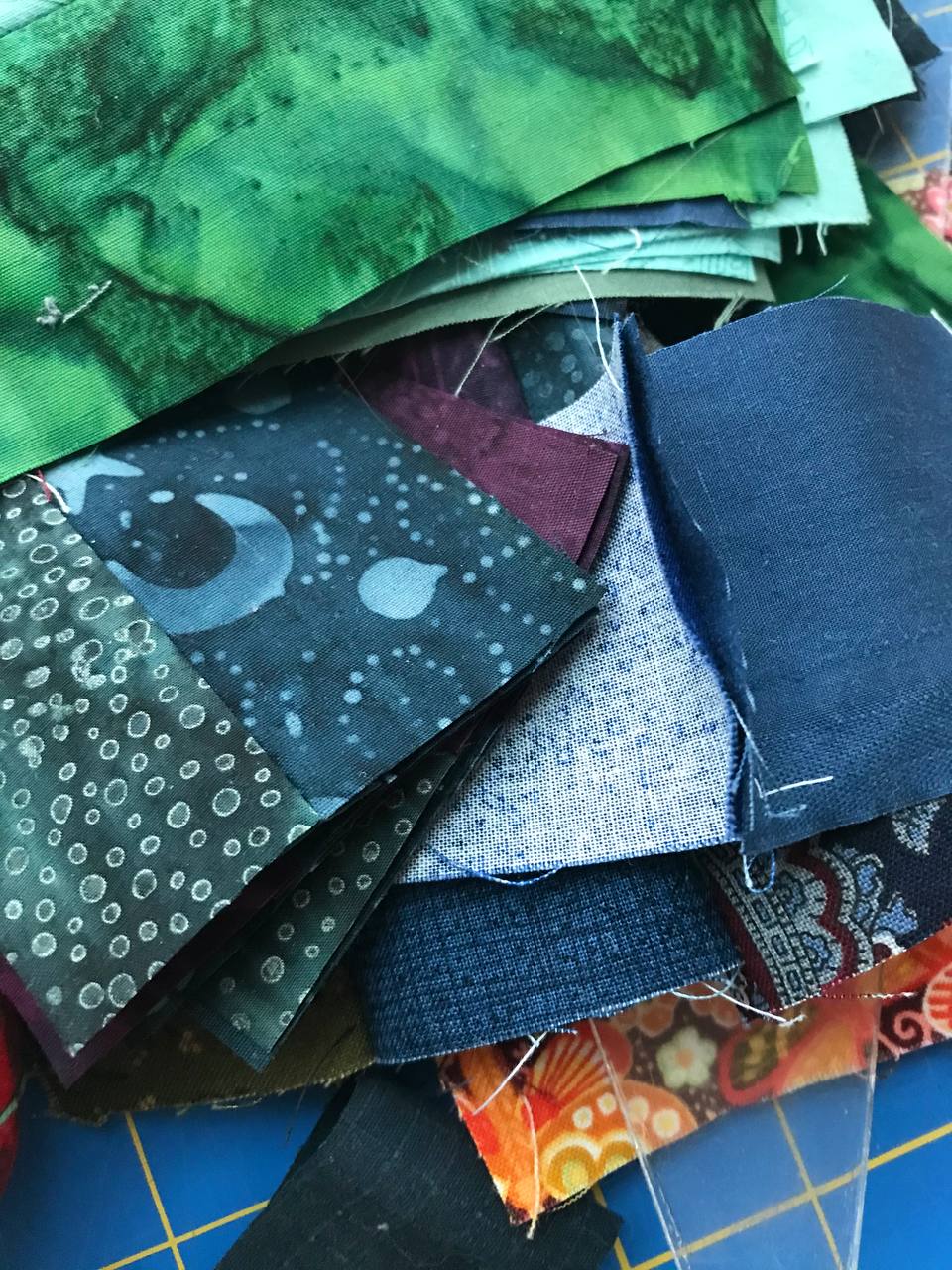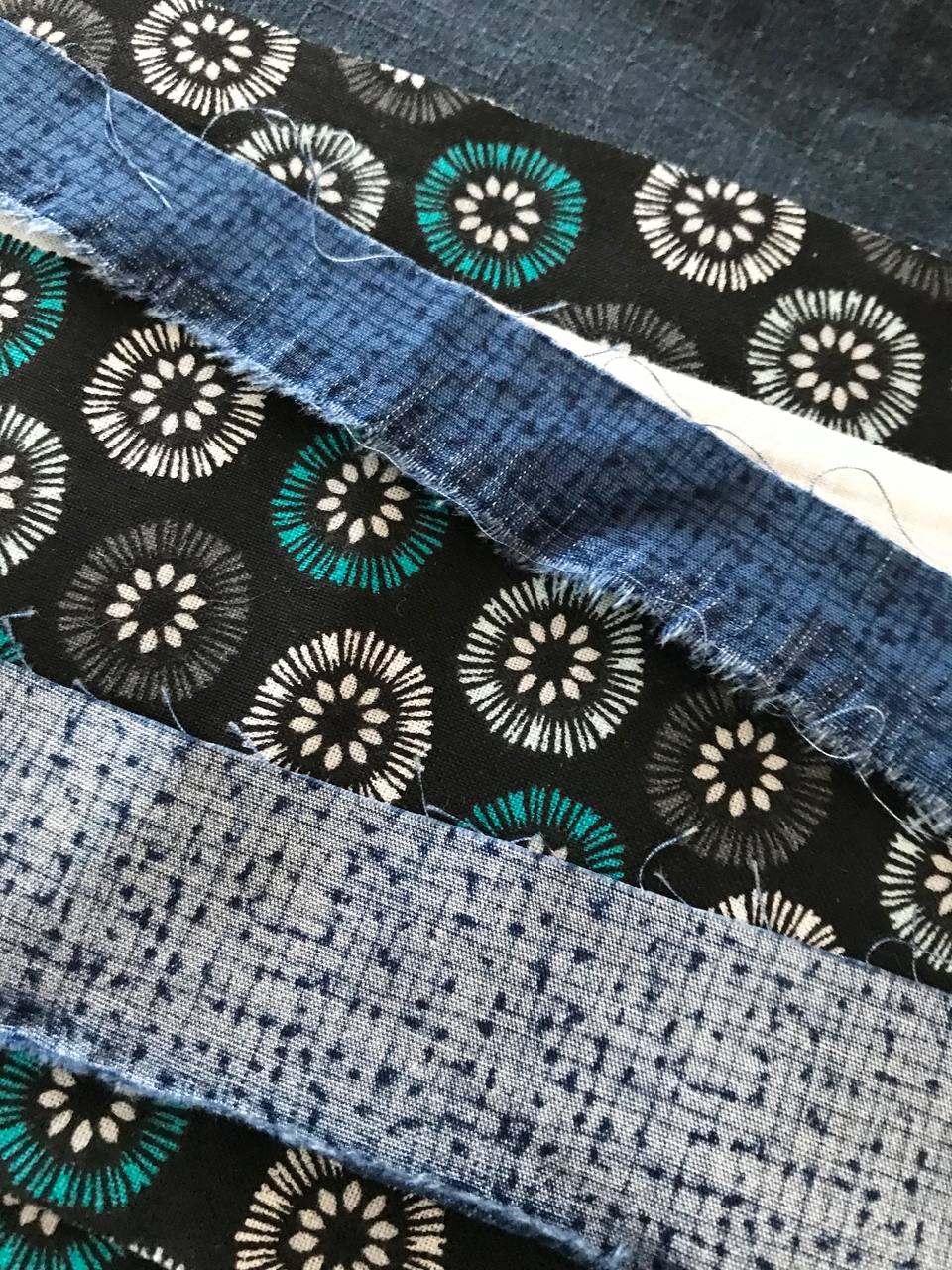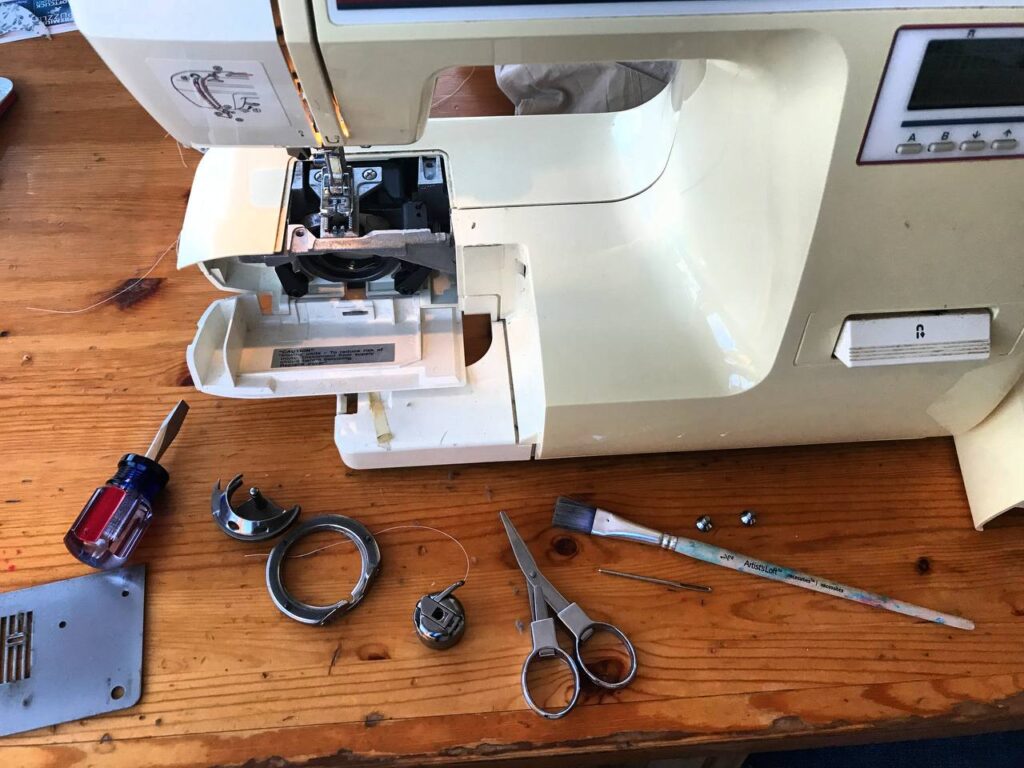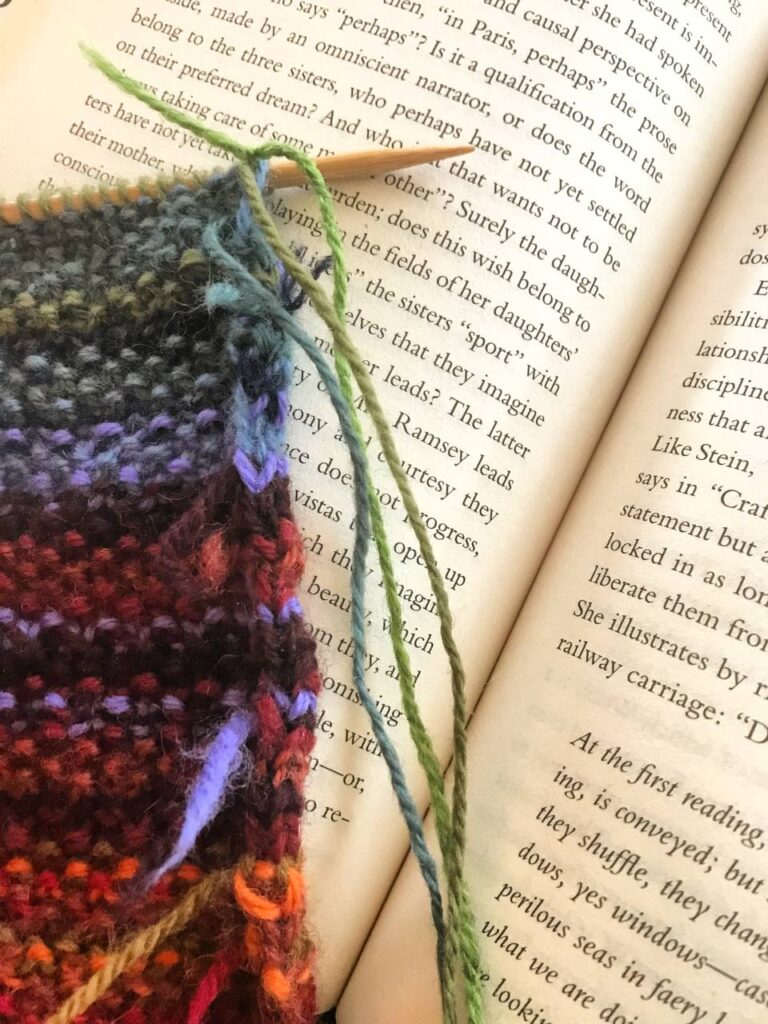The kids were pulling presents out, and Kav held one up.
“Who’s this for?”
I pointed to the name written on it. “It starts with V. Who do you know starts with V?”
“Dad,” Finn answered for him.
Um, okay. Right, Dad starts with V…if his name is Vince, at least.

We’re all working on the English language here in this house, even the parents who write and wrestle with commas for a living, and also the older kids in various levels of literature and language arts.
Reagan brings me her journal and holds it out to me. The sentence she’s trying to write is “Finn is coughing today,” and I bet you can guess which word is tripping her up. Because English is hard, and also stupid.
So far she’s tried “koring” and “caing” and I’m super excited that she’s figured out the “ing” part consistently. And I know you can’t sound out the word coughing because the letters don’t make sense, but she needs to at least try. She knows what the sounds are.
Often though, she doesn’t want to try, so we get these wild random spellings that aren’t even close. And I can’t blame her, sometimes laziness is my default, too.
I could just spell it for her. If she copied it enough times she would probably learn it, and learning is why we’re doing this, of course. But we’re not just wanting her to memorize; we’re wanting her to think, and solve, and resolve. And for that, she needs to sound it out. We want solving problems to be our (and her) default, not just memorizing answers.
And when she tries that, that’s when I’ll give her the real answer and explain that English is hard and stupid. (Okay fine, probably not.)
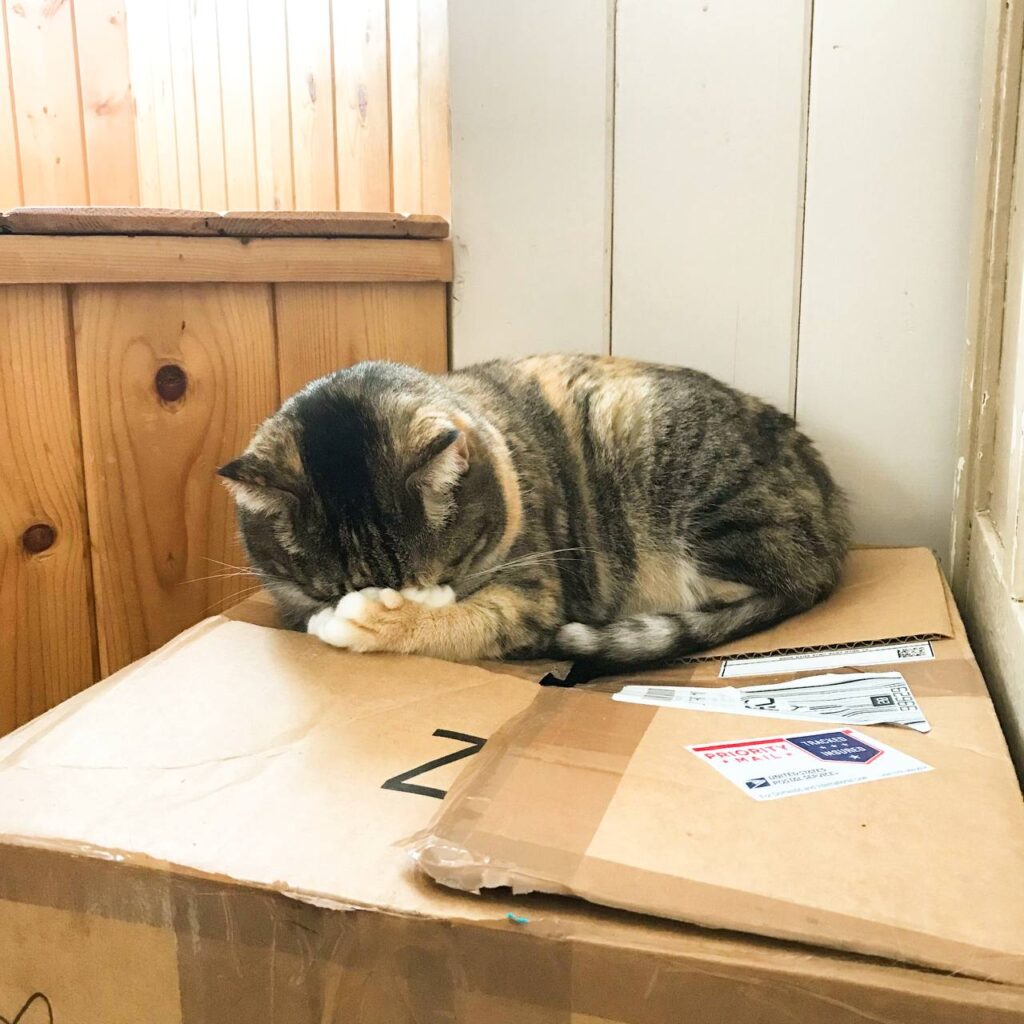
But I won’t step in if she’s not even trying. I’m not playing tricks on her; I’m teaching her that we can do hard things. Simultaneously, God is teaching me the same thing, because this slower-than-molasses progress tries my patience like you wouldn’t believe. Her way is not my way. But if I push her to do things my way, we take a small frustration and turn it into a much bigger conflict.
I therefore, a prisoner for the Lord, urge you to walk in a manner worthy of the calling to which you have been called, with all humility and gentleness, with patience, bearing with one another in love, eager to maintain the unity of the Spirit in the bond of peace.
– Ephesians 4:1-3
I’m helping her navigate problems and grow, and we all do that growing and navigating at different levels. We understand things differently because we have different perspectives.
For example, most of us know exactly what’s happening in this verse:
…for [Jesus] was teaching his disciples, saying to them, “The Son of Man is going to be delivered into the hands of men, and they will kill him. And when he is killed, after three days he will rise.”
– Mark 9:31
It’s pretty straightforward to us. We’ve read the Book, seen the crime play out; we know what happened and we’ve heard the story a zillion times.
But His disciples – those closest to Him – didn’t get it. They didn’t see what was coming, and this was their response:
But they did not understand the saying, and were afraid to ask him.
– Mark 9:32
To us, there’s no ambiguity. The way Jesus said it is the way it actually happened. But if we put ourselves in the disciples’ shoes, what He said was totally bewildering. Is He really talking about Himself? Is he being symbolic? Does “killed” really mean “killed,” or does it mean something else?
Are we dealing with something that’s straightforward, or is there more to it than that? Is “cough” spelled C-O-F-F, or does it have some of those confusing extra letters in it?
So in their misunderstanding, they respond in a way we totally relate to. They were afraid to ask Him. The Greek for fear here is “phobeo,” and it is a strong fear, meaning to put to flight, terrify, frighten, or incite dread. It’s the kind of fear that avoids and leads to more misunderstanding. I don’t want to know, so I won’t ask. So they didn’t.
Maybe they were too proud, too insecure to reveal their ignorance. Maybe they were hoping the situation would just go away. And we do those things too sometimes, glossing over and avoiding what makes us uncomfortable.
And sometimes we’re afraid to talk about things directly, so we talk behind each other’s back. We don’t want to look stupid or wrong, so we put other people down, instead. Which is interesting because in the very next verses, here’s what the disciples do:
And they came to Capernaum. And when [Jesus] was in the house he asked them, “What were you discussing on the way?” But they kept silent, for on the way they had argued with one another about who was the greatest.
– Mark 9:33-34
They competed. They puffed up. They pointed fingers. And then they avoided again, refusing to admit what they’d been doing. Fear, pride, and insecurity were still driving them, and they didn’t want to do the hard work of considering something unfamiliar and seemingly impossible.
Which leads me to something that happens in our house occasionally: Vin or I will explain something to one of our kids, and they’ll interrupt us with, “I know.”
(Right, this never happens at your house. Humor me.)
So Vin or I will answer, “No, if you knew, I wouldn’t need to be telling you,” and then continue what we were saying, hoping that this time they’re paying attention. Because we know the “I know” is blowing us off. Sometimes it’s insecurity and pride, pretending to understand something they don’t; and sometimes it’s laziness, not wanting to take the time to consider a different perspective. It could be any number of things, really. If solving problems were easy, we wouldn’t call them “problems” in the first place.

And we don’t solve problems in all the same ways, any more than we sound things out in the same ways. For example, I have no idea how they teach language arts in the South, where they are reckless with vowels. Excuse me for yelling, but I AM SO GLAD I’M NOT TEACHING MY KIDS ENGLISH IN THE SOUTH.
Because in some places there, for example, little i says ee, and big I says ah. As in, “Be steel and know that Ah am God.” If I’m quiet, I can hear this in the voice of my pastor’s wife.
But it’s not just vowels; it’s also syllables. In the South they remove them from some words (I was shocked and bewildered the first time I heard a Southerner pronounce “oil,” which to me should sound like “oy-ul” and not just “ull”) and then, messing with vowels again, they put extra syllables into other words where God never intended them.
How many syllables does “sin” have? Two if you’re from certain parts of Texas: See-in. Clap, clap. Two syllables. No big deal, we both agree sin is wrong. We just say it differently.
Months ago I went to a reception for a new friend and I didn’t know how to spell her name on the card I brought for her. So I asked a mutual friend. Unfortunately, that friend is from the South, and I don’t even know how to phonetically write what she said. But as she coached me through the spelling, it was sort of like, “Kye (rhymes with eye) – ah – ee – ayus –”
And I thought to myself, What’s an Ah? What the heck is an AYus? I knew it made perfect sense to her, but I had no clue. So I smiled, nodded, and happened to look down at the cake, which had our friend’s name on it in frosting.
If you’re from the South, I hope you know I love you. We’re saying the same things; we just say them differently.

Communication can be hard. Understanding and loving each other can also be hard. Jesus didn’t buy peace with compromise, but He also knew His disciples were befuddled, wrestling, and had their own insecurities and growth to overcome.
So He patiently let them wrestle – you think He didn’t already know what they were talking about along the way about who was the greatest? – and then He brought some gentle correction and perspective.
And he sat down and called the twelve. And he said to them, “If anyone would be first, he must be last of all and servant of all.” And he took a child and put him in the midst of them, and taking him in his arms, he said to them, “Whoever receives one such child in my name receives me, and whoever receives me, receives not me but him who sent me.”
– Mark 9:35-37
The thing about little kids is that they love to learn. They don’t pretend to have all the answers. They love risk and wonder. They’re not afraid to ask questions and they’re not driven by pride or insecurity. And generally, if they’re with someone they trust, healthy kids are excited about the unfamiliar instead of afraid of it.
But when we see people doing something unfamiliar or unexpected, we tend to create circles of belonging and exclusion, like the disciples did in the very next verse:
John said to him, “Teacher, we saw someone casting out demons in your name, and we tried to stop him, because he was not following us.”
– Mark 9:38
Jesus responds to their tattling with perspective and wisdom in His correction, because He knows they are still sounding this out, too. He doesn’t want them — or us — to just memorize; He wants us to broaden our perspectives and consider new things. He wants us to think, and solve, and resolve.
But Jesus said, “Do not stop him, for no one who does a mighty work in my name will be able soon afterward to speak evil of me. For the one who is not against us is for us. For truly, I say to you, whoever gives you a cup of water to drink because you belong to Christ will by no means lose his reward.”
– Mark 9:39-41
We often misunderstand things that are perfectly clear when they’re not what we expected or predicted. But the Holy Spirit is teaching us, making us like Him, and He doesn’t want us to just memorize principles, because memorizing answers isn’t the same as solving problems. He wants us to walk in a manner worthy of our calling:
With all humility and gentleness. With patience. Bearing with one another in love, eager to maintain the unity of the Spirit in the bond of peace.
(Even if we don’t know an A from an Ayus.)
To do that, we need to consider the unfamiliar, and do hard things. We need to grow deep and wide. We need to snuff out comparison with humility. We need to try our patience, stretching it farther than we thought it could go. And when we do, grace will press out our insecurities and pride and unnecessary conflicts, as light presses out darkness.
Want more posts like this, right to your inbox? Subscribe here.




